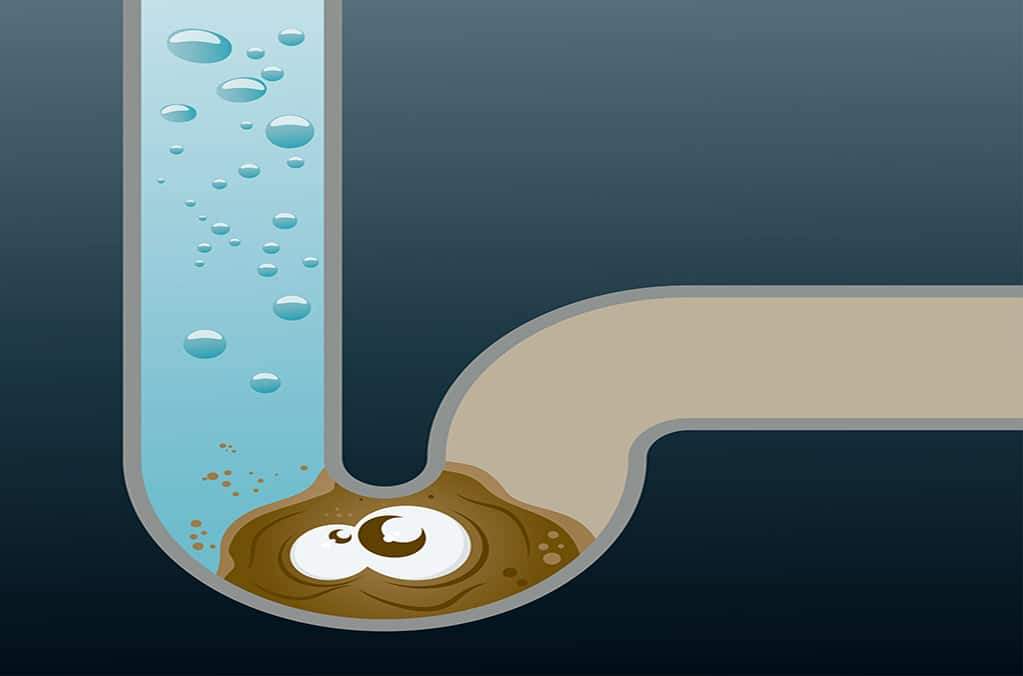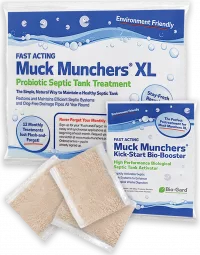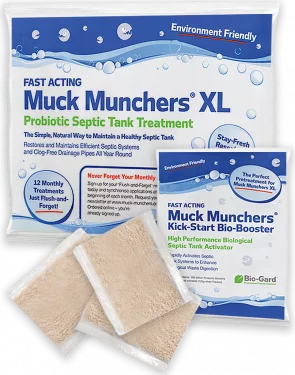Are Enzyme Drain Cleaners Safe for Septic Tanks?
No matter whether you are a septic tank owner, or not if you’re experiencing an issue with your drains and looking for a solution to improve slow-draining water, foul smells and black slime you may well have come across articles about enzyme drain cleaners.
We have a lot of customers asking us –
1) What are enzyme drain cleaners?
2) Are enzyme drain cleaners safe for septic tanks?
3) What’s the difference between enzyme drain cleaners and bacterial enzyme-producing cleaners?

For those of you who regularly read our articles, you may well have read our guide on how septic tank enzymes work, where we explain what septic tank enzymes are.
In this article, we set out to clarify the differences between Simple Enzyme Cleaners and extended-performance Bacterial Enzyme Cleaners along with a few recommendations on the best ways to fix rotten drains and prevent issues from occurring in the future.
What is an Enzyme Drain Cleaner?
Enzyme drain cleaners are a natural alternative solution to using harsher chemical products that are frequently used to clean drains.
Enzyme drain cleaners make use of enzymes to break down organic matter into smaller molecules. What enzymes, on their own, do not do is to then digest the resulting smaller molecules. They rely upon nature doing its course further down the line, either in the septic tank or sewage works.
Even so, simple enzyme only drain cleaners are considered safer than chemical solutions because they are natural and hence better and safer for the environment.
Over time, continued use of chemical drain cleaners can erode pipes and may even cause long-term damage to your septic tank. What is more, chemical cleaners kill the good bacteria you have in your tank.
What is a Bacterial Enzyme Cleaner?
Bacterial enzyme cleaners are similar to enzyme drain cleaning solutions in that they are based upon a similar ‘natural’ technology.
However, when you use a bacterial enzyme cleaner you are also adding ‘good’ bacteria to your septic system. These bacteria digest the organic waste in your pipes and work to break down and disperse blockages. Therefore, bacterial enzyme cleaners can help to keep your pipes and septic tank clean without the need for nasty chemicals.
Major Differences and Benefits When Using a Bacterial Enzyme Cleaner
- The bacteria will continue to produce enzymes naturally and therefore provide extended performance.
- Once the enzymes have broken down large FOG molecules (fats, oils and greases) will munch through and digest the smaller molecules to prevent your drains from blocking and clogging in future.
Do Enzyme Cleaners Use Chemicals?
No – both simple enzyme cleaners and the superior bacterial enzyme-producing cleaners use no chemicals and act as catalysts to break down waste.
What is the Difference Between Enzyme Cleaners and Chemical Cleaners?
Chemical cleaners, by and large, rely on artificially compounds to burn through dirt, grease and grime. This is a fast-acting, yet highly corrosive approach to cleaning drains, pipes and septic tanks, and can create hazardous gas.
Enzyme cleaners, including bacteria-based products, work naturally to break down FOGs without any corrosive chemicals. This process may occur more slowly than with chemical cleaners, but it is much more beneficial for your septic system and the environment.
How Do Bacterial Enzyme Cleaners Work?
Bacterial enzyme cleaners, unlike enzyme drain cleaners contain microbes that start to eat through organic waste and produce enzymes on their own.
Bacterial enzyme cleaners help keep healthy bacteria re-populating your drain and septic tank systems, ensuring a steady production of enzymes for months to come.
Using a bacteria friendly drain cleaner, such as Digesta ensures that your kitchen and bathroom drains remain free-flowing for longer periods. This is because bacteria are actively maintaining your systems – with little or no need for human intervention.
What are the Pro’s and Con’s of Using Enzyme Drain Cleaners Safe for Septic Tanks?
The Pro’s
Enzymatic drain cleaners are highly effective at helping to clear partial blockages and to keep septic tanks maintained without chemicals. They are non-corrosive and are often 100% natural (though, as always, check the bottle).
These cleaners are also safe for your plumbing. Chemical cleaners or highly abrasive products and pose risks to piping, drains, and tank integrity.
Enzyme cleaners are highly beneficial for bacteria populations, too. These cleaners will help existing septic tank bacteria to digest waste more easily. Moreover, non-chemical enzyme drain cleaners will also pose no risk to your bacteria.
Where abrasive chemical drain cleaners can kill bacteria outright, enzyme cleaners will keep your drains clear and your bacteria working hard to reduce septic tank sludge. Enzyme cleaners will also work in hot water.
The Con’s
Some septic tank owners may choose chemical cleaners over enzyme drain cleaners simply because they work faster. As examined above, this speed comes at a cost – namely, it will mean you lose bacteria that break down waste in your septic tank, and run the risk of damaging your system long-term.
Enzyme cleaners may not be the most effective at getting rid of large blockages and clogs. Instead, septic tank owners may use these cleaners to help maintain and gently clean their systems once major blockages are removed.
When it comes to bacterial enzyme cleaners, a word of caution – most bacteria will die if exposed to temperatures higher than 40 degrees centigrade.
Why are Enzyme Producing Bacteria Superior to Enzyme Drain Cleaners?
Enzyme producing bacteria offer more than a one-off cleaning solution.
1) By adding microbes to your drainage and septic tank, you ensure that it can remain clean and clear for an extended period. This is because bacteria will continue to produce enzymes for as long as they are active.
2) Bacteria producing enzymes will not only break down molecule chains but will also digest waste. Therefore, adding live bacteria is more efficient, more cost-effective, and safer all around.
Do Enzyme Bacterial Drain Cleaners Dissolve Hair?
No – an enzyme bacterial drain cleaner will not dissolve hair, it WILL, however, digest the FOG that bind to and surround the hair strands that are stuck in your pipes.
The process of digesting this muck means that your drainage pipes will flow freely, as they should.
An ‘enzyme only’ drain cleaner won’t dissolve larger molecules of FOGs, instead, they will break them into smaller lumps which will then dislodge and move to somewhere else within your pipes where they will continue to cause you a problem.
Are Enzyme Drain Cleaners Safe for Septic Systems?
Enzymatic drain cleaners are considered much safer than chemical alternatives because they are, largely, naturally formulated. Once again, it pays to read the ingredients of any given label before use.
Chemical drain cleaners are not only highly toxic, they are immensely corrosive. Therefore, your family, pets – and yes, your septic tank – are considered much safer off with enzymatic drain cleaners.
As producers of eco-friendly septic tank treatments we recommend bacterial enzyme drain cleaners such as Digesta. Digesta will naturally break down long-chain FOG in waste traps, drainage and grease traps making it easier to flow into your septic tank where it can then be digested.
In Summary
Enzyme drain cleaners are safe for septic tanks. Unfortunately, we see and hear time and time again, that customers experiencing blockages and foul odours from their drain pipes or traps can quickly grab a chemical drain cleaner. This may do the job in the very short term, but really, you are fixing one problem and causing yourself and your tank another.
Therefore, you could find your drains start to clog and smell more frequently. Look for genuinely ‘green’ drain cleaners first.
We also recommend that you check the ingredients of any cleaning products you intend to use in your septic tank. A cleaner with any trace of chemical compounds risks weakening or destroying your bacteria population.
Prevention is always better than cure, and in the case of your drains, we recommend regular use of Digesta, which will continue to break down FOGs and not destroy the good bacteria in your septic tank.










